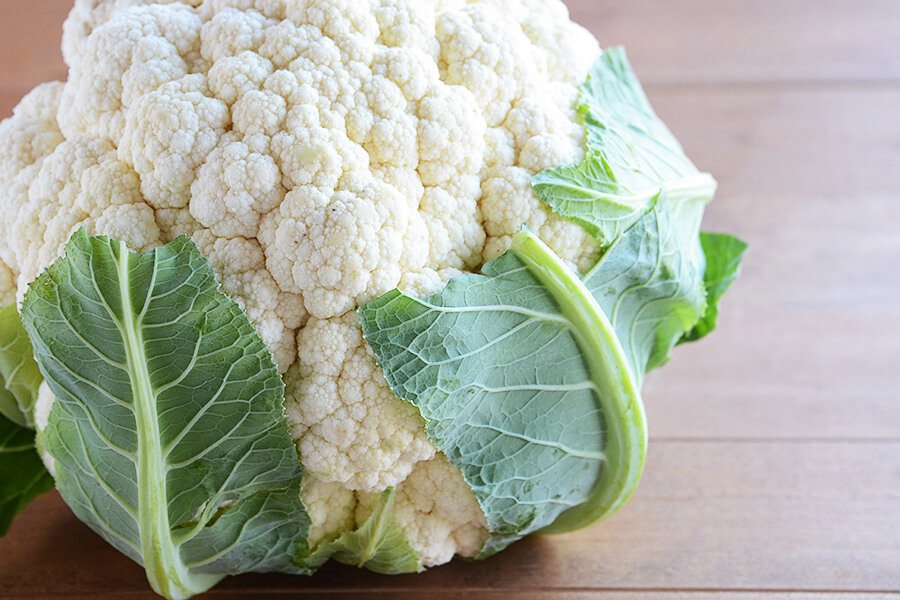Evidence Update: The Wonders of Cauliflower

Does cauliflower have any nutritional benefit? I see it used in so many recipes these days I was wondering if I should avoid it because it’s white? Rice, mashed “potatoes”, pizza crust: what do they all have in common? The Answer: Cauliflower. Yes, I said cauliflower, that peculiar looking white vegetable that keeps sneaking its way into our favorite traditional recipes. The cauliflower craze is upon us, and it’s one craze that will do our bodies well. Cauliflower has a laundry list of health benefits, and for those who need to cut back on carbs, it seems to have the ability to disguise itself in high carb foods like mashed potatoes, rice, and pizza crust without compromising flavor. Cauliflower is a member of the cruciferous family. Other family members include broccoli, brussel sprouts, bok choy, collard greens, kale, red and green cabbage, chard, turnip greens, arugula, mustard greens, savoy cabbage, chinese cabbage, rapini and watercress. Several root vegetables like radish, horseradish, turnip, rutabaga, wasabi and oriental radish are considered cruciferous vegetables as well. The Academy of Nutrition and Dietetics notes that the flavor of these vegetables is enhanced if they are eaten either raw or cooked soon after purchase, and the good news is their nutrient composition does not alter greatly with cooking. Since most people have the misconception that “white” food is “unhealthy”, they assume the same holds true for cauliflower. Even though cauliflower isn’t as colorful as other members of its family, it’s just as nutritious, and in some cases surpasses them when it comes to several nutrients. Cauliflower is an excellent source of vitamin C, vitamin K, folate, pantothenic acid, and vitamin B6. It is a very good source of choline, dietary fiber, omega-3 fatty acids, manganese, phosphorus, and biotin. Additionally, it is a good source of vitamin B1, B2, and B3, the minerals potassium and magnesium, https://accisotret.com. Cruciferous vegetables have several proven health benefits. One of the most exciting benefits is that it can decrease cancer risk. These amazing vegetables have the ability to decrease activity of enzymes that stimulate carcinogens in our body, and, on the flip side, they protect DNA from damage. According to the Linus Pauling Institute and the American Cancer Institute, cruciferous vegetables can prevent normal cells from becoming cancerous cells, slow the growth of cancer cells and may even cause cancer cells to self-destruct. Including cruciferous vegetables as part of your regular diet can lower the risk of lung, colorectal, prostate, bladder and breast cancers and may even protect against melanoma and esophageal cancer. In April 2012, Vanderbilt-Ingram Cancer Center scientists reported that survival rates of women diagnosed with breast cancer increased with a high intake of cruciferous vegetables. The Take Home Message: not all “white” food is created equal, especially when it comes to cauliflower. Linus Pauling Institute, the American Cancer Institute, Vanderbilt-Ingram Cancer Center, The Academy of Nutrition and Dietetics.
Evidence Update: Effects of Exercise on Sleep Problems

Having Trouble Sleeping? Sleep problems are common during and after treatment for breast cancer and can add to fatigue, stress and reduced quality of life. A recent study looked at the effect of a 12-week exercise program on sleep. The program was conducted with patients receiving radiation treatment. Sleep quality and issues were evaluated in 160 breast cancer patients before, during, and 2, 6, and 12 months after participation in a resistance exercise program versus a relaxation program that served as a control group. Researchers found that the exercise group had significantly fewer sleep issues than the relaxation control group. In addition, the study at pharmacybc.com/ambien-zolpidem/ found that predictors of sleep problems included previous chemotherapy and higher body mass index. Not sleeping well? Come to a TurningPoint exercise class or talk to our expert clinicians about exercise, nutrition and other lifestyle changes that can help. Steindorf K, et al. Effects of exercise on sleep problems in breast cancer patients receiving radiotherapy: a randomized clinical trial. Breast Cancer Res Treat. 2017 Apr;162(3):489-499.
Patient Perspective: Nancy

When I received my cancer diagnosis I was new to Atlanta and went back to Philadelphia (where I had lived for 40 years) for my surgeries and reconstruction. Traveling was a challenge but worth it emotionally. My husband, son and close friends offered support. My career has been mainly Interior Design and a Retail store…it was my vocation and my passion. I continued to work and complete the projects I had started. After the surgeries were completed I felt alone with a number of unanswered questions. I felt depressed and overwhelmed. TurningPoint gave me hope and understanding of what was happening to my body. They gave me a place to ask questions and felt safe. It was a very scary time for me, as it must be for many people. They helped me return to my hobbies, travel and antiquing and spending time with my grandchildren. TurningPoint gave me hope.
Evidence Update: Benefits of Exercise During Radiation Treatment

Many breast cancer patients experience fatigue during and after radiation therapy. A recent meta-analysis combined the results of many studies that assessed the effect of exercise during radiation on fatigue and quality of life among breast cancer patients. The results of nine studies were combined to include a total of 738 participants. The results showed that exercise was effective at reducing fatigue, particularly combined aerobic and resistance exercise. The authors concluded that exercise during radiation can be considered beneficial in breast cancer patients. TurningPoint’s weekly Friday Stretch and Strengthen class is a great way to get started on the path to reducing fatigue and feeling better during and after your breast cancer treatment! Lipsett A et al. The impact of exercise during adjuvant radiotherapy for breast cancer on fatigue and quality of life: A systematic review and meta-analysis. Breast. 2017. 8;32:144-155.










